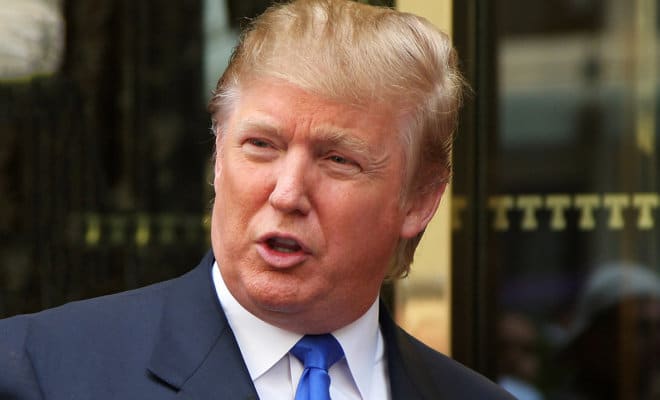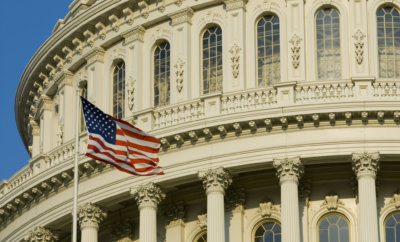Immigration
Donald Trump Rejects New Bipartisan Immigration Bill

Donald Trump in front of Trump Tower in New York City.
Photo: Bigstock
The bipartisan immigration proposal was introduced by Republican Senator John McCain and Democratic Senator Chris Coons.
The U.S. Senate remained divided on Feb. 5 about a bipartisan proposal introduced to solve the crisis around the legal status of undocumented young immigrants to the country. The immigration proposal, introduced by Republican Senator John McCain and Democratic Senator Chris Coons, was rejected by U.S. President Donald Trump on the social media.
The purpose of the legislation was to provide a path to resolve important immigration issues and allow the Congress to devote full attention to finalizing a budget deal that fully funds the military. It aimed at protecting immigrants entering the United States as children illegally and assisted by the Deferred Action for Childhood Arrivals program (DACA), also known as “Dreamers,” from being deported.
The bill also sought to bolster border security. But it was not able to bring in the $25 billion that President Trump desires for a wall between the United States and Mexico. The U.S. President took to the social media and announced that the proposal was a complete waste of time.
Trump tweeted on Feb.5, saying that any deal on DACA that does not include strong border security and the wall is a total waste of time.
Any deal on DACA that does not include STRONG border security and the desperately needed WALL is a total waste of time. March 5th is rapidly approaching and the Dems seem not to care about DACA. Make a deal!
— Donald J. Trump (@realDonaldTrump) February 5, 2018
According to McCain, the legislation is a Senate companion bill to the Uniting and Securing America (USA) Act to protect Dreamers from deportation and provide a pathway to citizenship while implementing new border security measures.
“Our legislation, which already has broad support in the House of Representatives, would address the most urgent priorities of protecting Dreamers, strengthening border security, alleviating the backlog in immigration courts, and addressing the root causes of illegal immigration,” McCain said in a statement.
McCain also took to the social media to announce the introduction of the bill.
Today I’m introducing a bill w/ @ChrisCoons that can serve as an important starting point towards reaching a bipartisan immigration compromise so we can end the gridlock & move on to completing a budget agreement that fully funds the military https://t.co/pSmxqQQx4q
— John McCain (@SenJohnMcCain) February 5, 2018
Coons said that although the bill doesn’t solve every immigration issue, it does address the two most pressing problems faced by the United States — protecting DACA recipients and securing the border. “I believe there is bipartisan support for both of those things and I believe that we can reach a budget deal that increases funding for our military and important domestic programs. We need to find a way through this gridlock to get Congress working again, and this is a viable path forward,” Coons added.
Trump announced on Jan. 24 that the Congress is going to strike a deal about DACA and the young people who were going to be affected by it could eventually get citizenship. But he stressed on the fact that it was up to the Democrats.
In January this year, a federal judge in California gave a temporary reprieve to people who were brought to the United States as children illegally. William Alsup ruled on Jan. 9 that the government must “maintain the DACA program on a nationwide basis” while litigation over the decision by Republicans to end the Deferred Action for Childhood Arrivals (DACA) is going on.
Trump announced in September last year that DACA would end on March 5. This gave the Congress six months to find a solution that would be permanent. Efforts to resolve the situation have not been fruitful so far. Global tech giants, including Google, Apple and Microsoft, have spoken up against Trump’s decision to rescind the DACA program, and pledged to stand by their employees.
If the DACA Act were to end, close to 800,000 people, including Indians and other South Asians would be affected. As many as 5,500 Indians and Pakistanis are covered under DACA and an additional 17,000 Indians are eligible for it, according to the South Asian Americans Leading Together (SAALT), a non-profit organization.




You must be logged in to post a comment Login